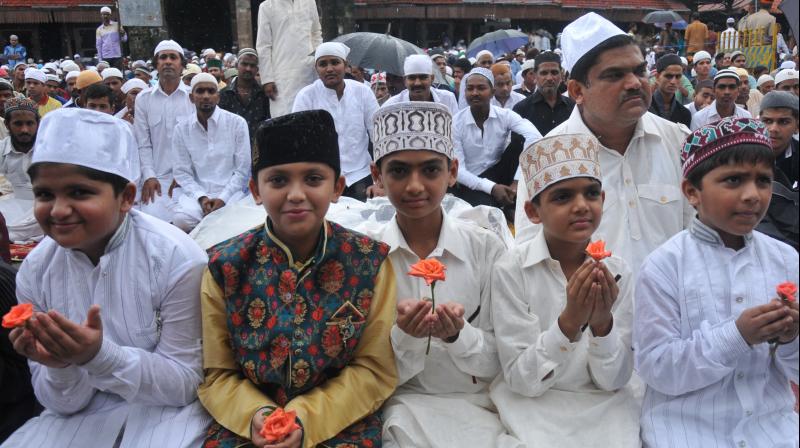Mystic Mantra: Id-ul-Fitr - A fest for one and all
Id-ul-Fitr, in an extended sense, aims to break the social barriers among the people to join the festival with groups of different traditions.

The festivities of Eid, which literally means something that returns every year, are here to take us to a spiritual journey of love, compassion and brotherhood. On every Id, Prophet Muhammad (pbuh) greatly stressed the need for brotherhood among all members of society. While emphasising the value of universal brotherhood, he used the Arabic word Ummah which includes all communities, races, ethnic tribes and social ranks. The Prophet exhorted his followers to treat all of them as brothers. Among the prophetic traditions (Sunnats) relating to Id-ul-Fitr are greeting and embracing all the neighbours, shaking hands and hugging when meeting or parting, visiting and comforting the sick, offering condolences to the bereaved, exchanging gifts and thus sharing joy and happiness with all means possible. Such acts that strengthen fraternity, brotherhood and charity are greatly valued on the day of Eid-ul-Fitr.
Eid seems to be a festival for a particular community, but actyually it is part of the universal celebration of social harmony. Notably, festivals in India look diametrically different in their exterior forms, but, in essence, they remain same in terms of the varied and enriching cultural expressions that promote social harmony. Every fest in this country helps people get together with a mutual feeling of cultural amity and universal brotherhood. Since the traditions of different communities pertain to a context, they are bound to differ naturally when they take shape. However, the underlying essence remains the same.
If there are ten members in a family, it is natural that the shape of all members will differ from each other but as part of the family unit, they are all the same. Similarly, each religion has different festivals but they are like brothers and sisters who thrive like beads in a rosary. Id-ul-Fitr, in an extended sense, aims to break the social barriers among the people to join the festival with groups of different traditions. One of the pressing needs of the time is to inculcate the spirit of universal brotherhood between different denominations. On the day of Id, people meet and greet each other, exchange gifts and sweets.
Muslims pray in congregations in the mosques. Most notably, there is a tradition of donating charity to the underprivileged as Fitr or Sadqa-e-Fitr, so that they can also celebrate the fest with equal amount of joy and happiness. Soon after completing Id-ul-Fitr Namaz, Muslims meet and greet their brethren in faith or in humanity embracing them while saying: Assalamu Alaikum (May you be blessed with the grace of God). This practice promotes universal love and compassion and inculcates kindness towards one and all. Thus, Id, like other festivals, is basically an integral part of wider social culture. Festivals like Id-ul-Fitr should not be treated merely as occasions for exchange of gifts; their paramount importance lies in creating opportunities for dialogue among people of various traditions, especially in India today. It will greatly help people of the country to rejuvenate their syncretic culture, re-connect with each other, negotiate and maintain social harmony.

